celebrity radar - gossips
MURIC Makes U-turn, backs down on suing Nigerian Artiste, Falz

The Muslim Rights Concern (MURIC) last week resolved to sue Folarin Falana (Falz the Bahd Guy), a Nigerian artist, who produced the video song titled ‘This is Nigeria’ in which a Fulani man was seen beheading somebody. The video also featured hijab-wearing female choreographers dancing the ‘shaku-shaku’ (a dance associated with drug). A seven-day ultimatum was given for the withdrawal of the video and an apology failing which a legal tussle would be launched.
Our office has since been inundated with solidarity visits, while our telephone lines have been flooded with a deluge of calls from members, friends, well-wishers, journalists and other concerned Nigerians, majority of whom are of the Islamic faith.
In view of the intervention of these well-meaning Nigerians, counseling from several quarters and commitments given by us to those who interfaced with us on this matter, an emergency meeting of MURIC’s Think-Tank was convened on Sunday, June 10, 2018 to review the situation.
In deference to pleas made by well-meaning Nigerians, in order to keep faith with our avowed motto (Dialogue, Not Violence) and to further confirm that MURIC is a listening, mature and responsible organization committed to promoting peace in Nigeria, the Think-Tank resolved to drag the artist to government agencies saddled with the responsibility of censoring films and videos. It is not a U-turn but a sudden change in tactics.
This will have a more enduring impact not only on Falz but the entire entertainment industry. It will also make the agencies sit up to their responsibilities and inject a huge dose of discipline in the music and film industries in general.
MURIC expresses deep appreciation to its members nation-wide, particularly Muslim lawyers who volunteered to take up the case gratis, leaders of Islamic organizations across the country who offered their solidarity as well as senior civil servants who shared their rich experiences with us.
Although he stopped short of apologizing, the artist has tried to clear himself in published interviews made available to us. According to him, he did not intend to ridicule Muslims. He said his intention was to call attention to the plight of the Chibok girls although we think he has done that the wrong way.
A scene in the video in which the ‘Chibok girls’ are in pensive mood would have been more representative of the reality on ground because kidnapped girls cannot be dancing like people under the influence of drug. They are in captivity and so they have no cause under the sun for jubilating.
Again, the Fulanis (Muslims) were painted as killers while Benue militias (Christians) who rustle Fulani cattles and slaughter their wives and children were not featured. This is grossly unfair. Falz should find a way of balancing his video. The kidnappers of the South East (also Christians) were spared while the oil saboteurs of the Niger Delta (Christians too) were ignored. Falz video is loaded with Islamophobia. That video should be titled ‘This is not Nigeria’. It is Islam-bashing. Nigeria’s video regulatory agency should therefore ban the video or ask the artist to edit it properly.
With this latest development and even before the seven-day ultimatum expires, MURIC is no longer contemplating court action against Falz, neither are we demanding any apology from him or his management. The likely pecuniary gain in the event of a court validation of our claims does not interest us. We are no longer looking at Falz but at a larger picture.
The courts will only be interested in legalities, judiciability and technicalities but the video board will look beyond all that. Is it professional? Is it balanced? Is it truly representative of our country? Is it morally justifiable? These are what will interest the board and they are in tandem with our thinking. We appreciate artists and our aim is not to punish Falz. He is not a lazy Nigerian youth.
The matter will now go to those government agencies who are supposed to do their jobs in the first place. Instead of creating media tension and granting cheap popularity, this matter will now be handled by professionals who know what to do.
Our emphasis is going to be mainly on the portrayal of Fulanis as killers in the video with the concomitant ugly perception it is likely to create among Nigerians as well as its bandwagon effect on the image of Muslims in general. This is one area Falz has not been able to explain away, yet he refused to apologise. That aspect of the video would have been edited had the censorship agencies done what was expected of them or if Falz had followed due process.
In the interest of peace, law and order, we are calling on the National Film And Video Censors Board (NFVCB) to take up the matter from this moment. Although MURIC will still do a followup with an official petition, we expect the board to have begun its independent investigations on the matter particularly with the furore generated by the issue.
In a nutshell, we insist that Falz video “This is Nigeria” is offensive and provocative. It portrays Fulanis (and Nigerian Muslims) as killers. It is capable of igniting crisis and precipitating a general breakdown of law and order. The video board must therefore do the needful
celebrity radar - gossips
E‑Money’s Grand Gesture: A Closer Look at the SUV Gift to Chinedu “Aki” Ikedieze

E‑Money’s Grand Gesture: A Closer Look at the SUV Gift to Chinedu “Aki” Ikedieze
By George Omagbemi Sylvester | Published by SaharaWeeklyNG
“Public Generosity, Celebrity Loyalty and the Symbolism of Wealth in Nigeria’s Entertainment Elite.”
On Tuesday, February 17, 2026, Nigerian billionaire and entrepreneur Emeka Okonkwo, widely known as E‑Money, once again captured national attention with a lavish and highly publicised act of generosity, gifting a brand‑new 2024/2025 Ford SUV to veteran Nollywood actor Chinedu Ikedieze, affectionately called Aki, during his high‑profile birthday celebration.
The event, held in Lagos amidst a constellation of entertainers, business figures and socialites, was itself part of an annual tradition in which E‑Money marks his birthday (on February 18) with large‑scale giveaways and spectacular shows of material philanthropy. This year, he announced the gift of over 30 cars to friends, staff and family, a gesture that quickly went viral as videos and images circulated across social media platforms.
In the case of Ikedieze, E‑Money’s gift appeared to be deeply personal. During the festivities, E‑Money stood beside his elder brother, Grammy‑nominated musician KCee and recounted how Ikedieze stood by him at his 2007 wedding. The billionaire explained that the SUV was a “token of appreciation” for the enduring support the actor had shown over the years which is a narrative that blends friendship with public celebration.
Ikedieze, a Nollywood staple with a career spanning more than two decades and over 150 film credits, including the iconic Aki na Ukwa franchise, visibly reacted with humble surprise as he received the vehicle, bowing his head in respect and gratitude. The actor later shared the moment on his Instagram account with a caption celebrating the gift, further fuelling online engagement around the event.
Beyond the spectacle, this incident underscores evolving dynamics in Nigerian celebrity culture and the intersection of wealth, influence and reciprocity. Sociologist Dr. Chinedum Uche of the University of Lagos, speaking on the broader implications of such high‑profile gifts, notes: “Philanthropy that is highly publicised can reinforce social bonds, but it also reflects a culture where generosity is intertwined with reputation economy; where giving becomes as much a social signal as it is an act of kindness.” The quote highlights how public acts of wealth transfer among elites serve layered social functions that extend beyond pure altruism.
Critics of such displays argue that ostentatious giveaways, particularly in a country with stark economic disparities, risk amplifying social envy and exacerbating perceptions of inequality. Economist Dr. Ifunanya Nwosu from the Lagos Business School observes: “In societies marked by economic stratification, celebrity largesse may inspire admiration, but it can also inadvertently highlight structural inequities; prompting questions about systemic investment in public welfare versus individual generosity.”
Still, supporters maintain that E‑Money’s annual tradition (which has in past years included cash gifts to his brother KCee, comedians and even domestic staff) reflects genuine gratitude and a commitment to uplifting his immediate circle, albeit within the private sphere.
For Ikedieze, the SUV stands both as a heartfelt gesture from a longtime friend and a public affirmation of their enduring relationship. As the video of the moment continues to circulate, the broader narrative has ignited discussions about the role of private wealth in public life, celebrity culture and how acts of giving are interpreted in contemporary Nigerian society.
In a landscape where influence and generosity often play out in equal measure on public stages, E‑Money’s gift to Aki is more than a headline, it is a flashpoint in ongoing debates about wealth, friendship and visibility in Nigeria’s entertainment and entrepreneurial ecosystem.
celebrity radar - gossips
Spiritual Reality: Wicked People Are Possessed by Wicked Spirits — Dr. Christian Okafor
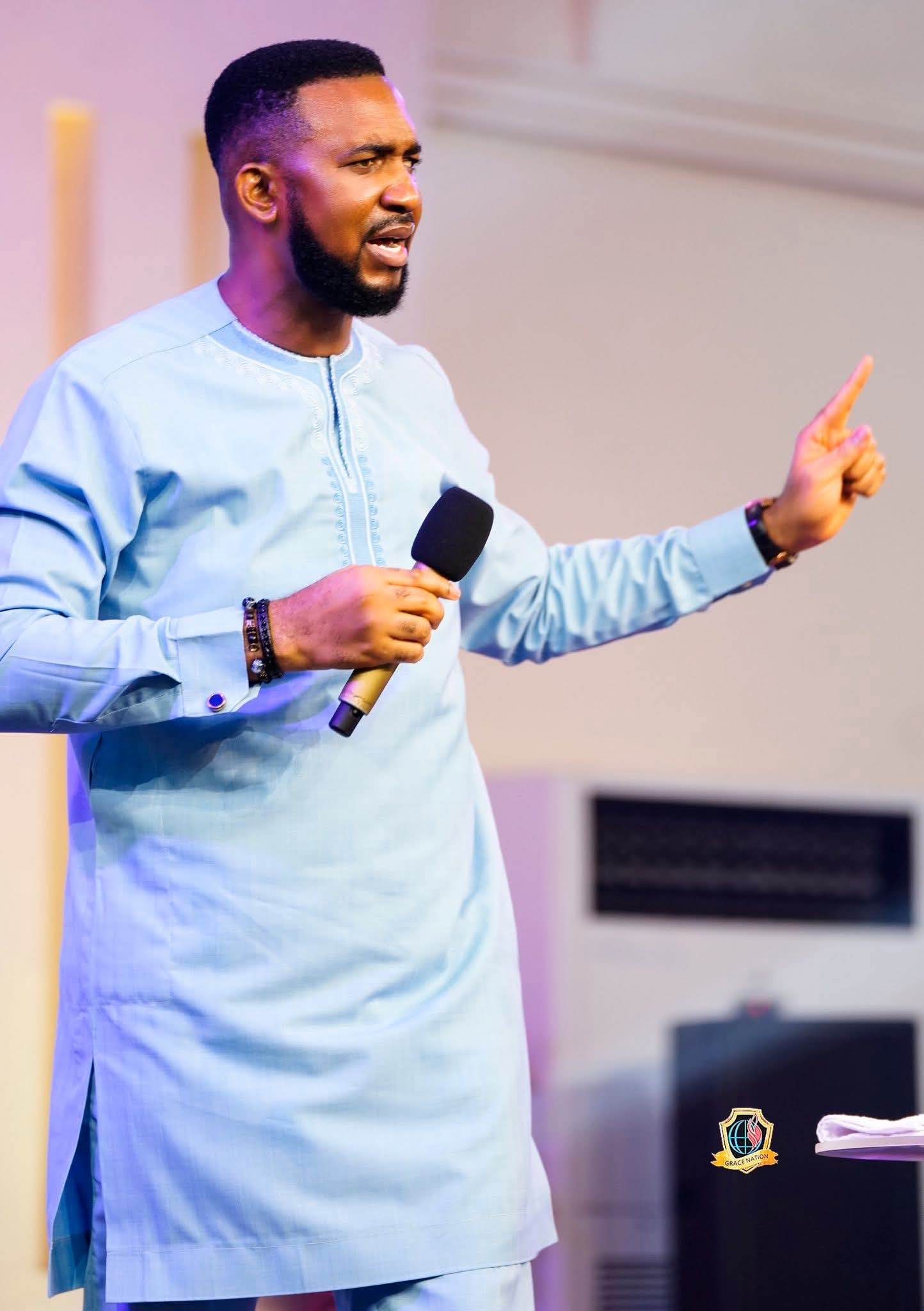
Spiritual Reality: Wicked People Are
Possessed by Wicked Spirits — Dr. Christian Okafor
…..“You don’t need to offend them before they attack you.”
…..“Your only true help comes from God.”
Demons are strategic and calculating. They detect threats quickly and position themselves to resist any power that may expose or overpower them.
According to the Generational Prophet and Senior Pastor of Grace Nation Global, Christian Okafor, spiritual intelligence operates both in light and in darkness—and believers must understand this reality.
Dr. Okafor delivered this message on Thursday, February 19, 2026, during the midweek Prophetic, Healing, Deliverance and Solutions Service (PHDS) held at the international headquarters of Grace Nation Worldwide in Ojodu Berger, Lagos, Nigeria.
The Operations of Demons
Teaching on the subject “Spiritual Reality” with the subtitle “Operations of Demons,” the Man of God explained that when demons possess individuals, their behavior changes. Such people may attack, bully, or resist those sent by God to help them, unknowingly rejecting divine assistance and prolonging their struggles.
“You don’t need to offend a demon before it attacks you,” he said. “What you carry is enough to provoke opposition. The greater your potential, the greater the battle.”
Dr. Okafor noted that many believers misinterpret battles as signs that God has abandoned them. However, he explained that some battles are permitted for growth, training, and divine glorification.
According to him, God may allow certain confrontations so that believers understand spiritual warfare and emerge stronger.
“Some battles are necessary,” he emphasized. “They push you into your turning point.”
He further stated that God does not respond to lies, blackmail, or bullying. He responds to His Word. Therefore, opposition is not proof of God’s absence, but often evidence of destiny at work.
The Weapon Against Demonic Attacks
Addressing solutions, Dr. Okafor described prayer as the strongest weapon against satanic operations.
“Prayer is the license that invites God into your battles,” he declared. “God does not intrude—He responds to invitation.”
According to the Apostle of Altars, understanding the principles and discipline of prayer enables believers to receive divine strategies for overcoming demonic resistance. Without prayer, he warned, spiritual help cannot be activated.
“You cannot receive help without God,” he concluded. “And you cannot engage God without prayer.”
Manifestations at the Service
The midweek gathering was marked by a strong move of the Spirit, with testimonies of deliverance, miracles, restoration, and solutions to various challenges presented before God. Several individuals reportedly committed their lives to Christ during the service.
celebrity radar - gossips
Kingdom Advancement: God Does Not Confirm Lies or Gossip — He Confirms His Word .” — Dr. Chris Okafor

Kingdom Advancement: God Does Not Confirm Lies or Gossip—He Confirms His Word
“When Doing Business with God,
People’s Opinions Do Not Count.”
— Dr. Christian Okafor
The greatest investment any Christian can make is partnering with God. According to the Generational Prophet of God and Senior Pastor of Grace Nation Global, Christopher Okafor, when a believer commits to serving and advancing God’s kingdom, no barrier, lie, gossip, or blackmail can prevail against them.
This message was delivered during the Prophetic Financial Sunday Service held on February 15, 2026, at the international headquarters of Grace Nation Worldwide in Ojodu Berger, Lagos, Nigeria.
Doing Business with God
Teaching on the theme “Kingdom Advancement” with the subtitle “Doing Business with God,” Dr. Okafor emphasized that when a believer enters into covenant partnership with God, divine backing becomes inevitable.
“God is still in the business of covenant,” he declared. “When you make a covenant with Him, He honors the terms. When you win souls into the kingdom and remain committed to His work, He rewards you with what you could never achieve by your own strength.”
The Man of God stressed that God does not confirm lies, gossip, or negative narratives—He confirms His Word. Therefore, anyone genuinely committed to kingdom business should not be distracted by public opinion.
“No matter the blackmail or falsehood circulating around you, if you are focused on God’s assignment, those attacks will only strengthen you,” he stated.
He further noted that a believer’s understanding of God’s covenant determines their experience. “Your mentality about God’s covenant becomes your reality. When you truly know the God you serve, no devil can move you.”
Biblical Examples of Kingdom Partnership
Dr. Okafor cited several biblical figures who prospered through their partnership with God:
Abel
Abel served God with sincerity and offered his very best. His sacrifice pleased God, demonstrating that when a master is honored, he responds with favor.
David
David’s heart was fully devoted to God, and in return, God’s presence and favor rested upon him throughout his life.
Hannah
Hannah made a covenant with God, promising that if He blessed her with a child, she would dedicate him to His service. After fulfilling her vow, God rewarded her abundantly, blessing her with additional children.
Peter
Peter, a professional fisherman, surrendered his boat at Jesus’ request for kingdom work. Through that act of partnership and obedience, he experienced supernatural provision and divine elevation.
Conclusion
In closing, Dr. Okafor emphasized that one’s approach to God’s covenant determines the level of success and prosperity experienced. Commitment to kingdom advancement secures divine confirmation and supernatural results.
The Prophetic Financial Sunday Service was marked by prophetic declarations, deliverance, healings, miracles, restoration, and solutions to diverse cases presented before Elohim.
-

 celebrity radar - gossips6 months ago
celebrity radar - gossips6 months agoWhy Babangida’s Hilltop Home Became Nigeria’s Political “Mecca”
-

 society6 months ago
society6 months agoPower is a Loan, Not a Possession: The Sacred Duty of Planting People
-

 society5 months ago
society5 months agoReligion: Africa’s Oldest Weapon of Enslavement and the Forgotten Truth
-

 news6 months ago
news6 months agoTHE APPOINTMENT OF WASIU AYINDE BY THE FEDERAL GOVERNMENT AS AN AMBASSADOR SOUNDS EMBARRASSING



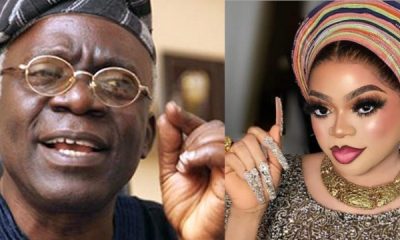

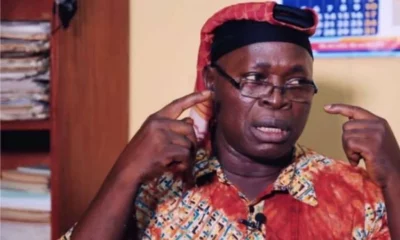


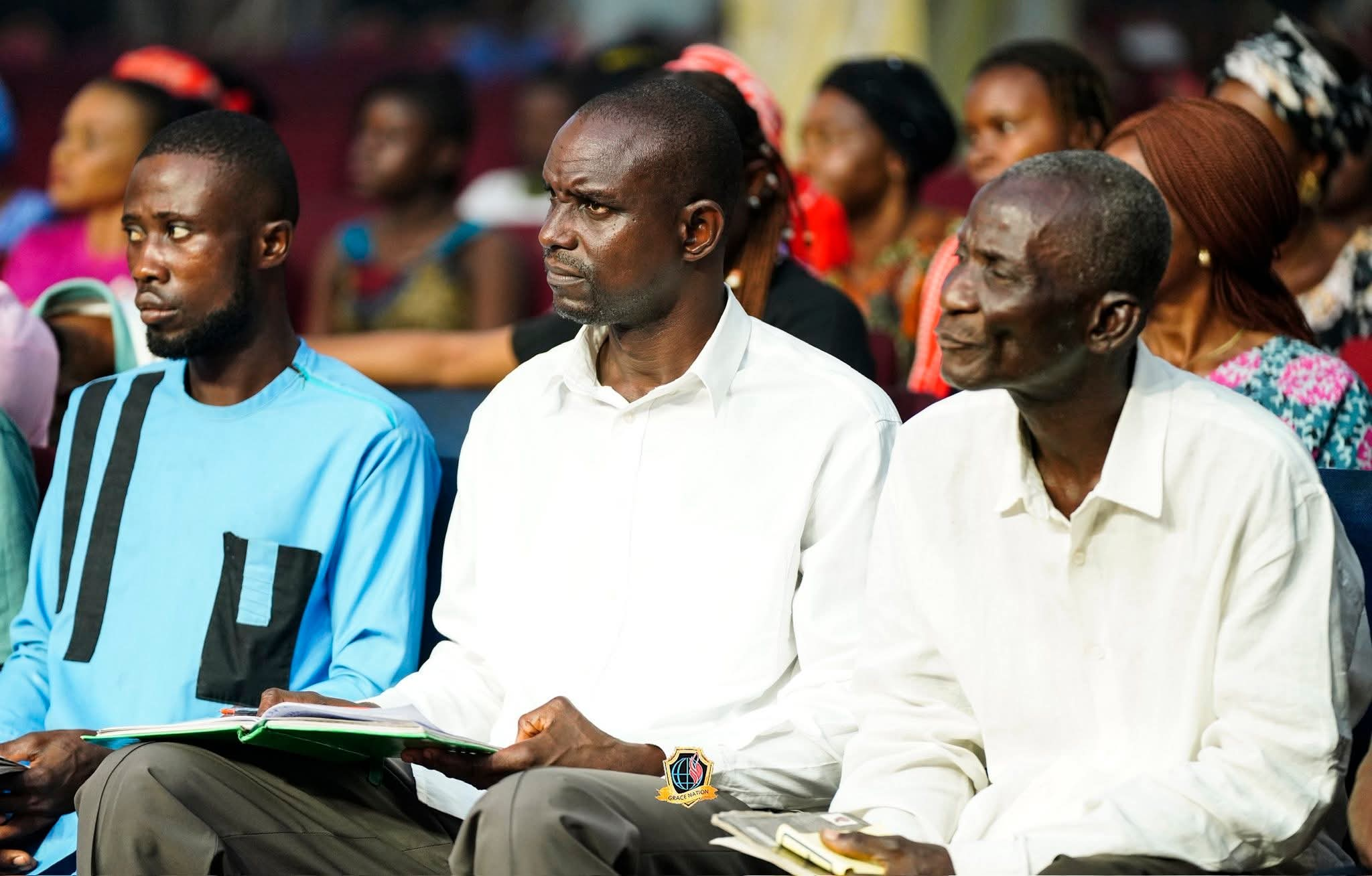

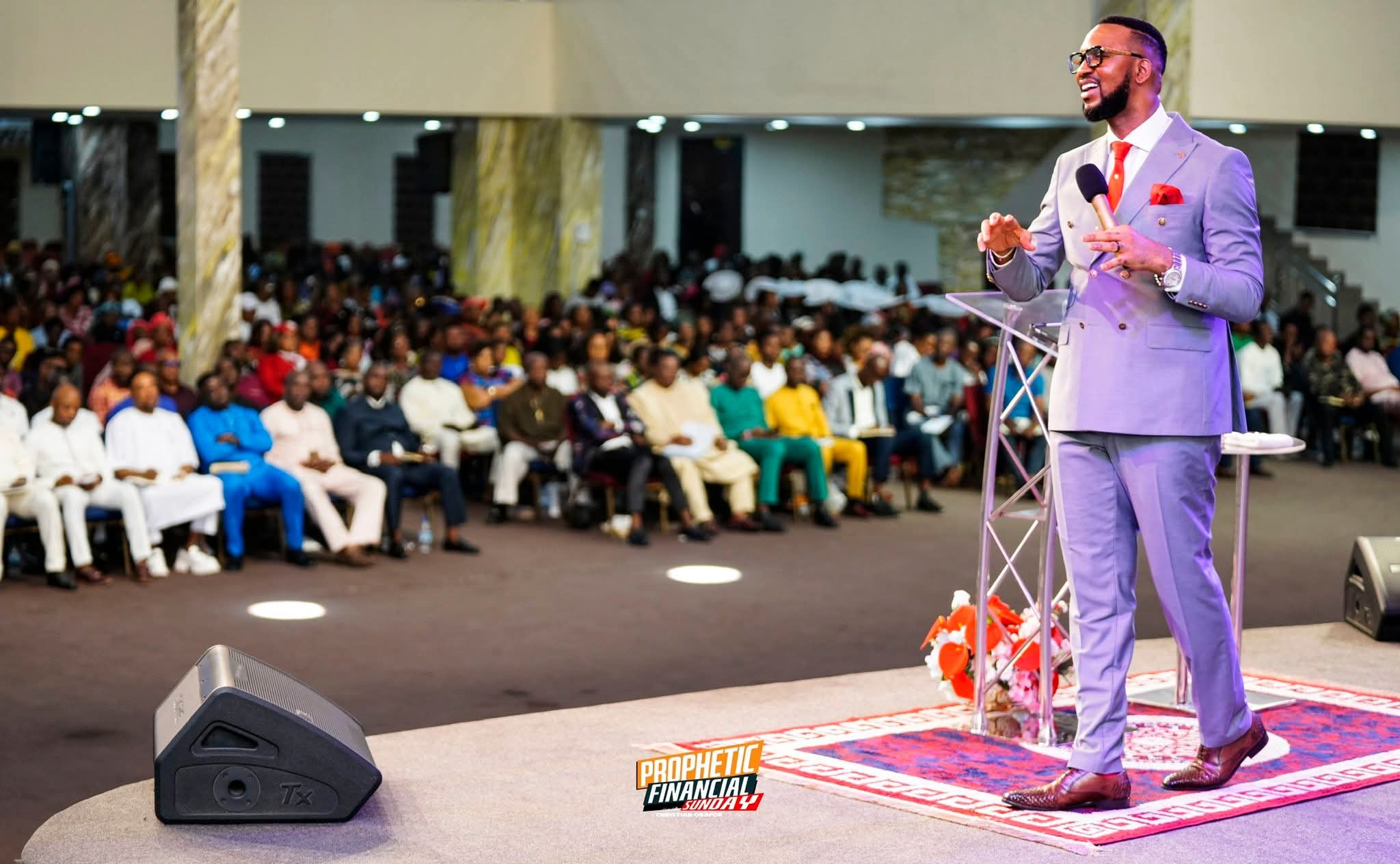
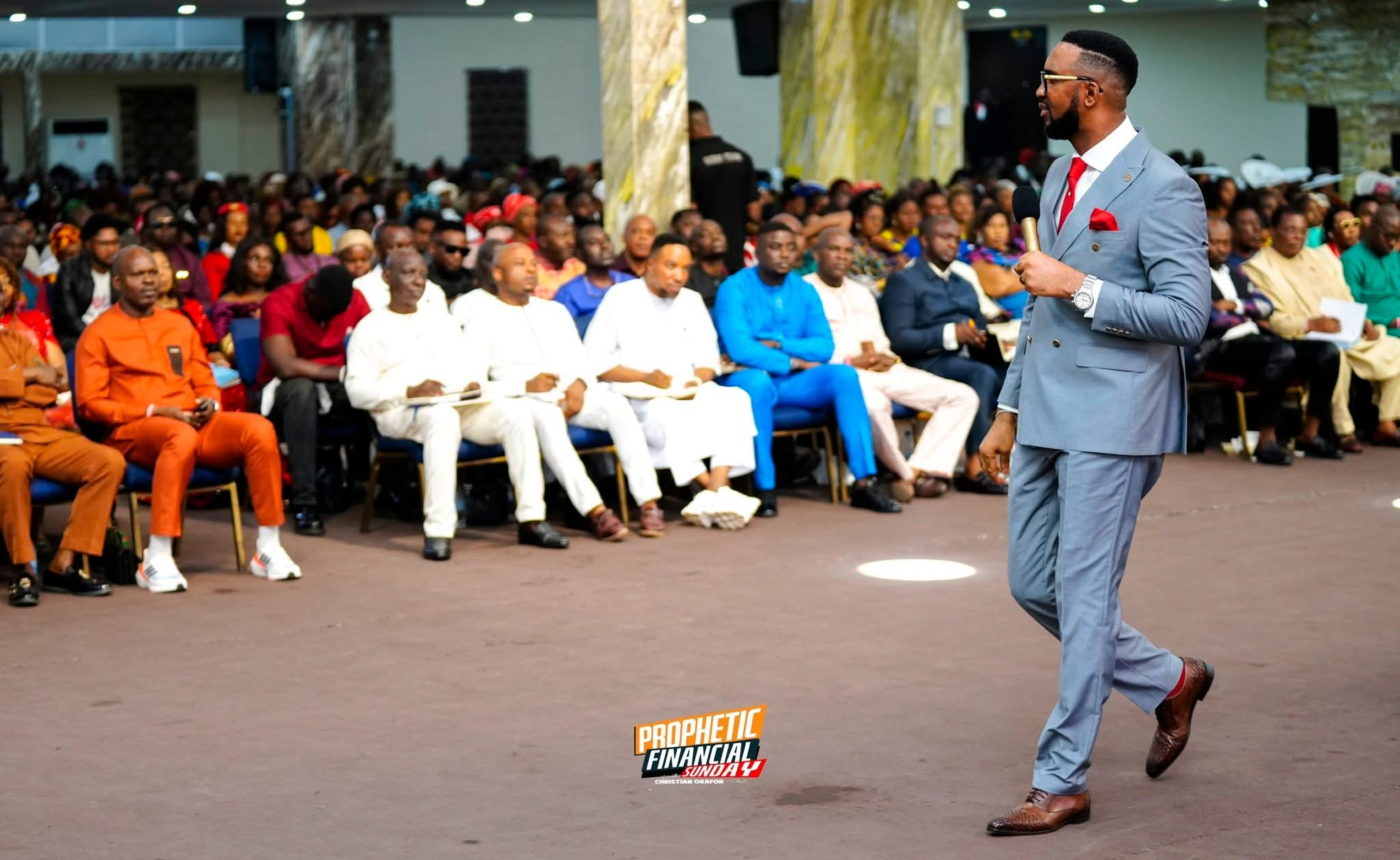

You must be logged in to post a comment Login